Iceland Grand Tour#
by Oleg Gaponyuk,
Sergey Semenov and
Mike Reyfman,
members of the AirPano Team that is a member of the global-geography Consortium.
16 October 2013
with kind permission of AirPano
We offer you to see the grand tour of Iceland, which is result of our shooting of Iceland for the last 5 years. The tour includes 82 panoramas. This is our biggest aerial virtual tour at the moment. Some panoramas have been published already, but another part is published for the first time.
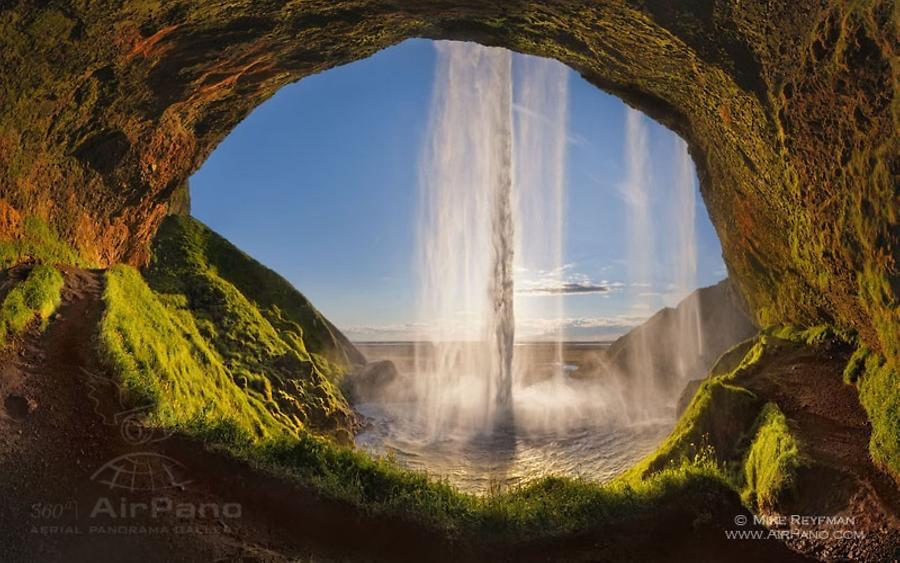
Once upon a time, Norwegian captain Floki Vilgerdarson was going to sail and took three ravens with him. On the tenth day he let the first bird fly and it flew to the East, back to Norway. Next day captain let the second raven fly but it flew back: it was too far from the shore. And on the third day the bird flew to the West. Here it was a long-awaited new land! But captain's joy lasted not much: the land was a desert, unfriendly and ice covered isle. Floki called that place Iceland - a country made of ice. This story let people know about the far and cold land; where earlier there wasn't a human foot.
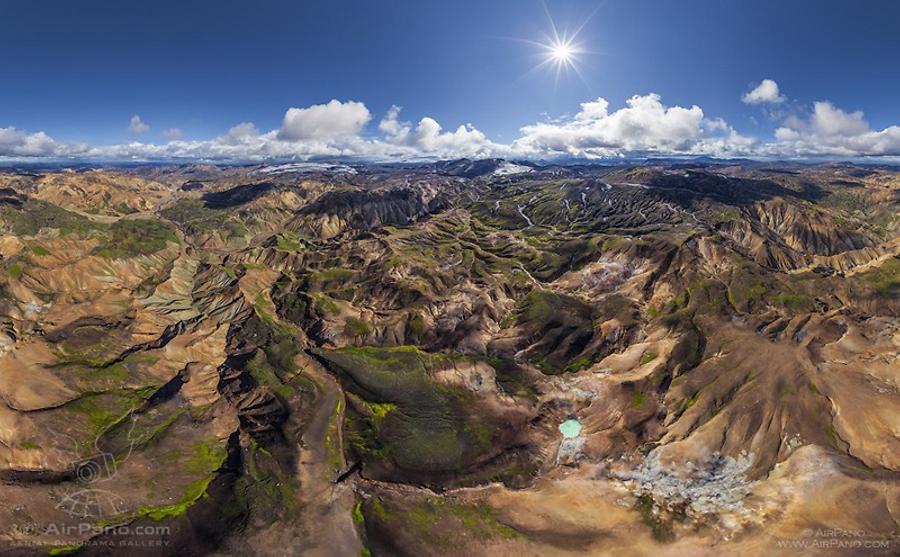
Reykjavik, capital of Iceland is a modern and picturesque metropolitan city with low houses under bright roofs. The city features many original structures, like outdoor swimming pools with natural thermal water, as well as other unique Reykjavik sights. Mt. Esja, at 914 meters, is the highest mountain to the east of the city. Reykjavik is literally bathing in greenery, which creates an amazing contrast to suburbs that almost devoid of any vegetation.
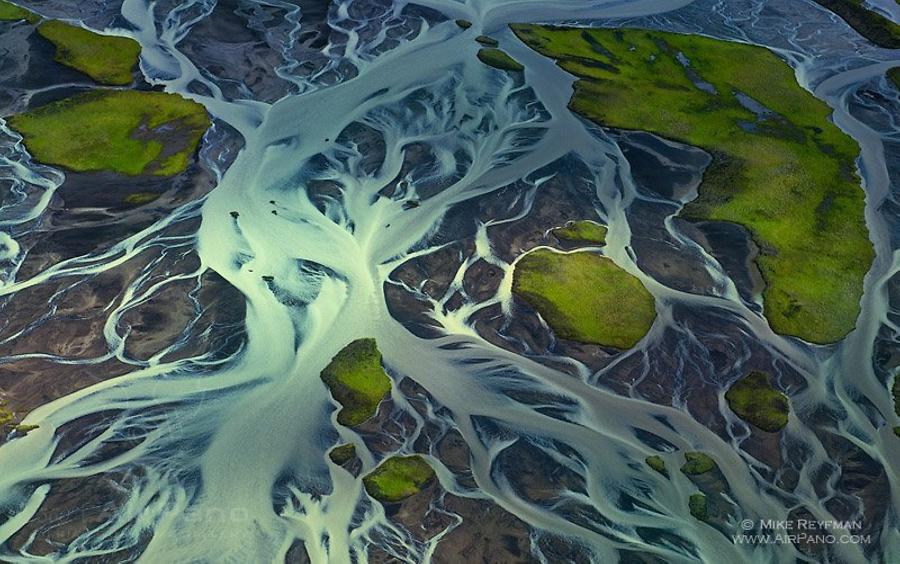
One of the most famous landmarks of Iceland is the Blue Lagoon. This unique geothermal pool is located in the southwest region of the country. It is about 200 meters wide and several kilometers long. Water temperature averages +37°C. The pool attracts tons of tourists every year, total number of which is almost equals the country’s population – over 300,000 people.
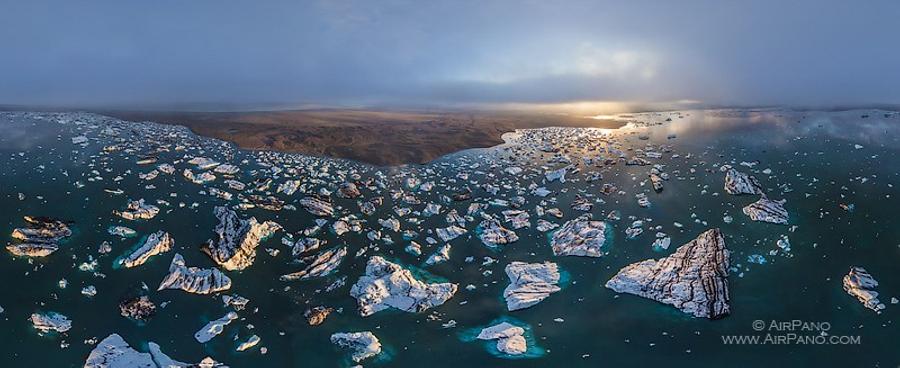
Iceland is also home to Europe’s largest glacier, Vatnajokull, and the most “boiling” river in the world – Deydartunguver. Its hot boiling cascades are fed by the hot springs and have an average water flow of 225 liters per second.
Moreover, the European equivalent to Niagara Falls is also located in Iceland. It is Dettifoss, the mightiest waterfall in this part of the world. It spills over 200 tons of water per second from 45 meters height. One can see its splashes a mile away, and rainbows play in its waters on sunny days. One such natural wonder is the Svartifoss waterfall, also known as the black fall.
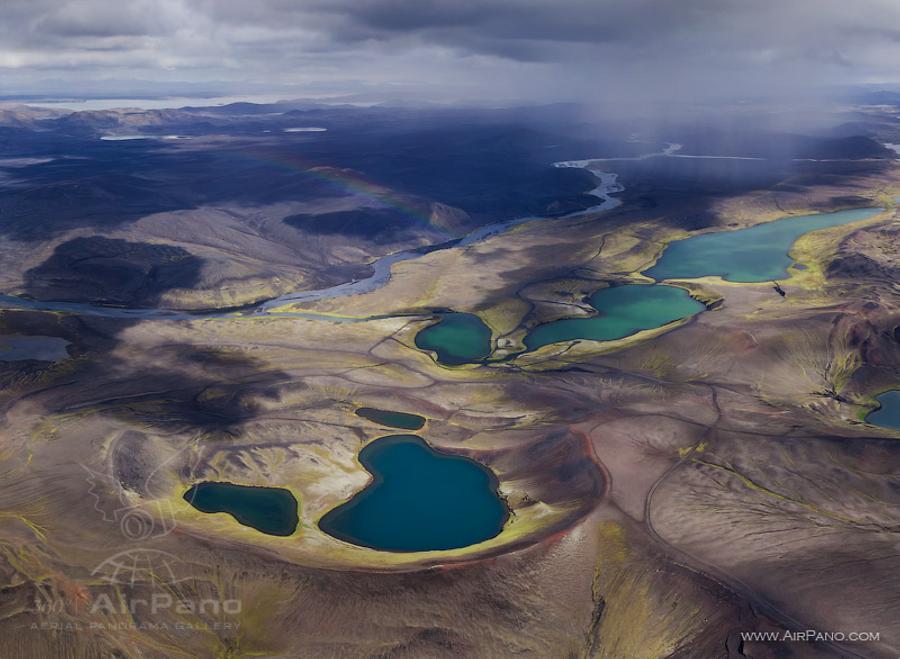
Jökulsárlón is a large glacial lagoon in southeast Iceland, on the borders of Vatnajökull National Park. This is the only place where one can see the picturesque sight: blue and white ice slowly drifts away from the tip of Vatnajokull glacier. Besides, Jökulsárlón is the lowest point in Iceland, due to the fact that heavy ice presses the soil under the glacier down, which is currently at 200 meters below the sea level.
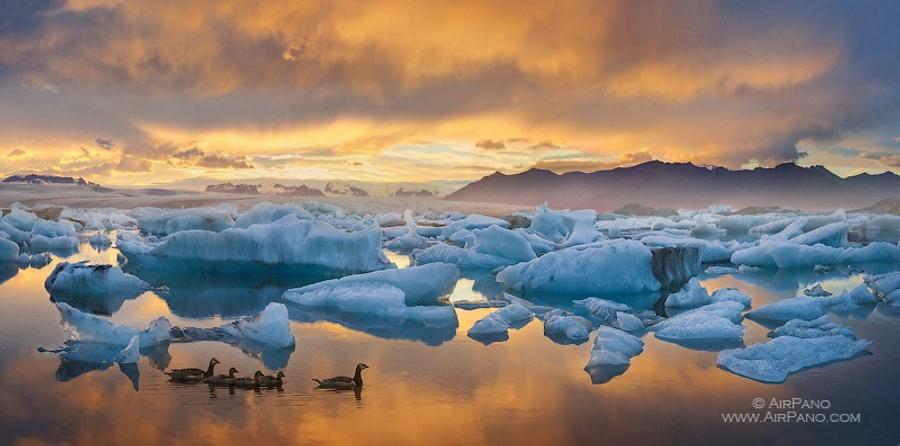
Iceland is actually one of the most active volcanic regions in the world. The Grimsvotn is a not ordinary volcano. It is unique because the huge 500-meter ice layer covers it. Besides, on the top of the volcano there is a caldera - enormous cup full of ice too. This cup's area, or in other words - ice lake, is 35 km². The volcano was erupting and the ice began to thaw. The eruption melted the ice layer in the caldera and much water accumulated there. As a consequence, a new lake appeared with a cone in its center.
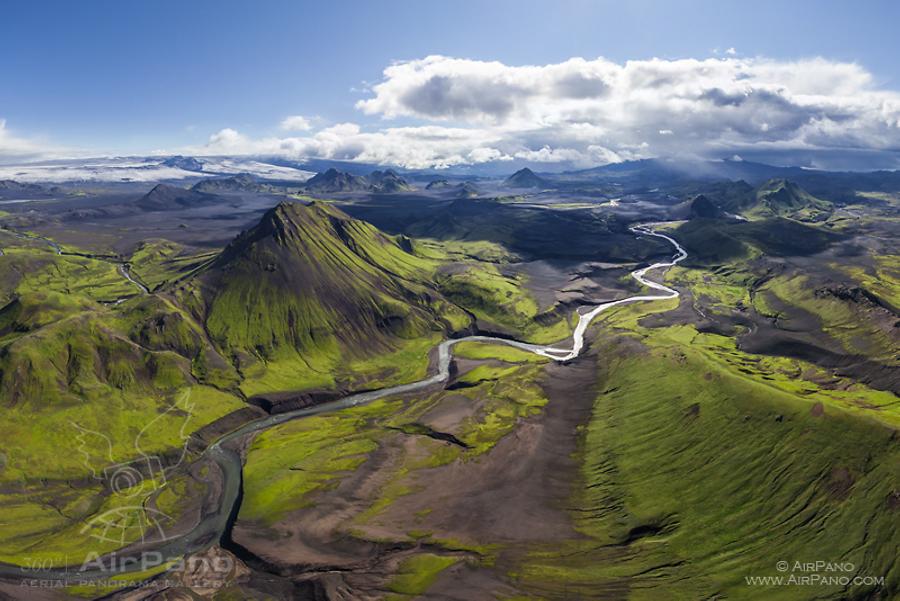
In total, there are more than 250 geyser groups consisting of 7,000 hot springs – the world greatest cluster of geysers.
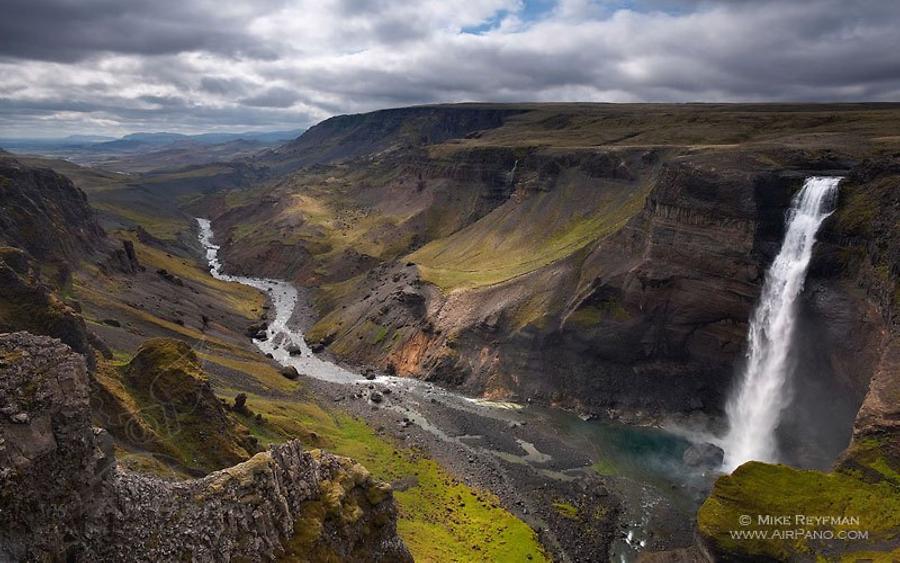
However, these records are not the ones that portray the charm of the nature of Iceland. Spacious fields, mountains, and water exists in all possible states: from frozen ice to steaming geysers – this is what makes this unique, majestic, harsh and deserted landscape of Iceland, the country that looks so different from anything else in the world.
87 Panoramas of Iceland
7 Panoramas of Highlands of Iceland
10 Panoramas of Iceland 1
18 Panoramas of Iceland 2